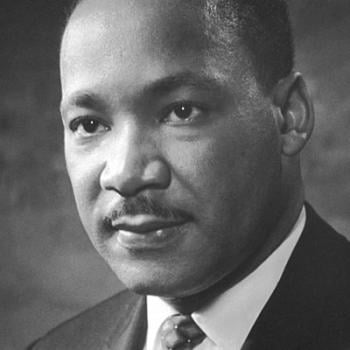
However reluctant many Trump supporters are to admit it, it now seems quite clear that Joe Biden is going to be the next President of the United States. And clearly American Catholics are deeply divided in their attitudes to this prospect.
On the day of the election, when the result was very far from certain, Catholic convert and natural law theorist Hadley Arkes wrote an article for The Catholic Thing on the potential Presidency of Joe Biden. Arkes regarded the prospect with horror–a nightmare from which he wished to wake. Unfortunately for his peace of mind, the nightmare looks like it may continue for the next four years.
There’s a lot to dislike about this article–for instance, the claim that while Trump “does not always speak in sentences” he can be “wisely counseled” and “can recognize nonsense at a hundred yards.” Paraphrase: “This uncouth boor is smart enough to listen to people like me and so, with Olympian condescension, I deign to accept him as a champion, unlike those Never-Trumper snobs who can’t see past the genteel distaste that of course, as a sophisticated person, I share.”
“Everything of moral consequence”
But what strikes me most about the article is a particular phrase that clearly reflected one of the principal reasons for Arkes’ horror at the possibility that Biden might become President. Arkes describes Biden as “a nominal Catholic who has come now to reject everything of moral consequence taught by his Church, whether on abortion or same-sex marriage or transgenderism.”
Note the three issues that Arkes considers of moral consequence. Chief among them, of course, is Biden’s position on abortion. And there he’s on relatively firm ground. Biden’s position is indeed in conflict with that of his Church. And as Arkes points out, the history of Biden’s position on the subject doesn’t speak well for Biden’s principles. He was, at one time, against public funding of abortions. (Arkes claims that Biden couldn’t explain why, but that’s hardly true. Biden has explicitly said on a number of occasions that he accepts Church teaching on the beginning of life but doesn’t want to force others to do so. That being the case, it would make sense that he would oppose public funding of abortions, and I am deeply saddened by the fact that he no longer does so.) His current unqualified pro-choice stance seems (like Trump’s “prolife” stance) to be the result of political expediency rather than principle.
But Arkes seems at least as concerned with gay and trangender issues. He blames Biden for blocking the appointment of Bork and thus indirectly causing the appointment of Anthony Kennedy, who would help to reaffirm Roe v. Wade in the 1992 Casey decision, but also, in the Romer and Lawrence decisions, “laid the groundwork for removing, from the laws, any adverse judgment on the homosexual life.” Thus, he argues, Biden is indirectly responsible for Obergefell and the legalization of same-sex marriage. The climax of “this part of the war on nature” came, according to Arkes, when Neil Gorsuch wrote an opinion saying that transgender people could not be fired for their gender identity. (According to Arkes, this meant “respecting the claims of the transgendered that, in the things that truly matter, they had changed from one sex to another.”) Since Gorsuch was an “acolyte” of Kennedy, this makes him Biden’s fault as well.
So we have a list of the things that are, for Arkes, of moral consequence: abortion, of course, but also homosexuality and the immutability of gender identity.
What’s not on that list? Every other aspect of Catholic social teaching. Immigration, the death penalty, poverty, war, the environment. All, according to Prof. Arkes, of no moral consequence.
A more breathtaking and thorough rejection of the moral authority of the Church is hard to find than in this staunch alleged defender of orthodoxy.
Saying the quiet part out loud
Of course the debate between those who insist that certain “non-negotiables” are supreme and those of us who advocate for a “seamless web” has been going on for decades now. But usually the advocates of the “non-negotiable” position insist that they do care about those other things too. Recently, for instance, one conservative Catholic (a fellow blogger here at Patheos in fact) posted in a Facebook group I’m part of his challenge to “progressive Catholics.” He believed that those of us who resist making abortion the paramount issue don’t have a “hierarchy of truths”–that we have no coherent way to order moral principles to one another. (Because, as he saw it, respect for life is the paramount moral principle–there I agree with him–and of the moral issues facing our society only abortion involves a direct denial of the right to life.) A number of us tried to show him how he was wrong, but he seemed to have entered the discussion with his mind already made up.
That’s the more common argument I hear from conservative Catholics–not that war and poverty and so on are of no “moral consequence,” but that abortion is more urgent. And while they do tend to list homosexuality and gender identity issues among the “non-negotiables,” they understandably focus on abortion.
Prof. Arkes, however, has, to use an overused contemporary cliche, “said the quiet part out loud.”
The real nightmare
Refugees are dying in squalor at the border because of the Trump administration’s deliberately vindictive policy toward them. But that is of “no moral consequence.”
Children are being ripped from their parents’ arms because these families have committed the unconscionable crime of exercising what the Catholic Church acknowledges as their right to emigrate in search of a better life. But that is of “no moral consequence.”
Saudi Arabia and the Yemeni government it backs have been slaughtering Yemeni citizens for years using munitions sold them by the United States. But that is of “no moral consequence.”
Poor Americans are dying for lack of healthcare, but that is not of moral consequence.
But that governments should be able to punish men for having sex with other men–that is of moral consequence.
That employers should be able to fire people for identifying as a gender different from the one assigned them at birth–that is of moral consequence.
It is more important, morally speaking, to hurt LBGTQ people than it is to help anyone else except the unborn.
That is what conservative American Catholicism has brought us to. That is the nightmare from which I long and pray to wake.
Photo by Clay Banks on unsplash












